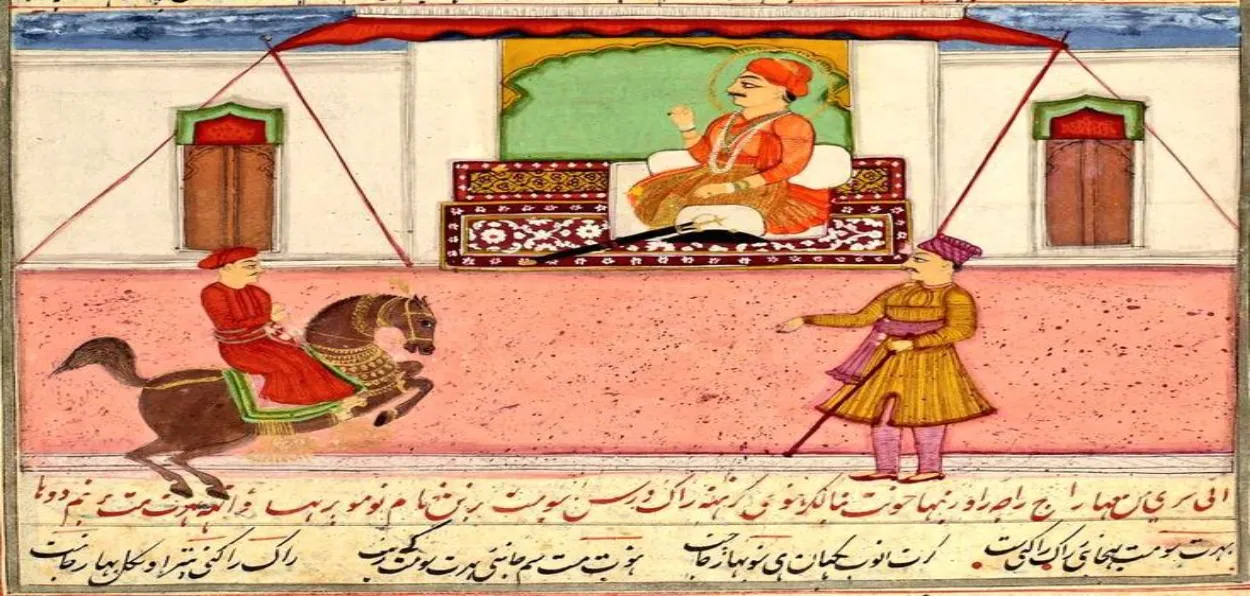
Saquib Salim
Raja Rao Rambha Jayawant Bahadur Nimblakar was the highest commander of the army of Nizam of Hyderabad during the early 19th century. In one of the monographs attached with the Census of India 1971, it was noted that Raja Rao Rambha used to put aside allowances for tazia (procession for 10th of Muharram), marsiyakhwans (singers of mourning songs in processions). He participated in Muharram processions.
The monograph notes, “Raja Saheb had no male issue and, therefore, Raja Rao Rambha on 7th of Moharrum vowed that he would offer Niaz and keep the Tazia in the name of Imam Hussain for a male issue. The next year as soon as a boy was born, he constructed Ashurkhana in his palace for keeping Alams and Tazias during Moharrum. All the family members used to wear green clothes and offer Fateha before Alams. Food, sweets, sherbet and milk are distributed among the poor and on the night of 7th Moharrum a procession is taken out from his palace in keeping with the old tradition set by Raja Saheb.”
It must be noted that Maratha chiefs for centuries had taken part in Muharram processions and revered them devoutly.
The ancestors of Raja Rao Rambha, Kshatriyas of the Suraj Bansi clan of Maharashtra, were known as Nimbalkars because they lived at a place called Nimbala near Delhi. They were related to the family of Raja Sivaji Chhattrapathi Bhonsle of Nagpur whose eldest daughter was married to one of the Nimbalkars.
Raja Rao Rambha’s great grandfather Rhambaji Baji Rao was born at Sagnapur and soon rose to prominence. Jealous Maratha Chiefs through different mechanisations sent him to the prison of Mughal Emperor Alam Shah at Red Fort in Delhi. K Krishna Swamy Mudiraj in his book Pictorial Hyderabad, published in 1929, wrote, “close to the prison there was an "Imam Bara" where "Alams" were installed and the unhappy prisoner on seeing them made a vow that should be escape, or be freed, from prison he would celebrate Moharrum yearly, although a Hindu. It so happened that the very next day the Emperor ordered him to be set free and brought before him.
ALSO READ: The Muslim changemakers of Maharashtra
"Returning home he bought "Alams" and performed all the necessary ceremonies in fulfilment of his vow made in prison. We are informed that since then the family of Nimbalkar has been observing this ceremony and spending Rs. 1200 every year over illumination and the feeding of the poor during the ten days of Moharrum.”
